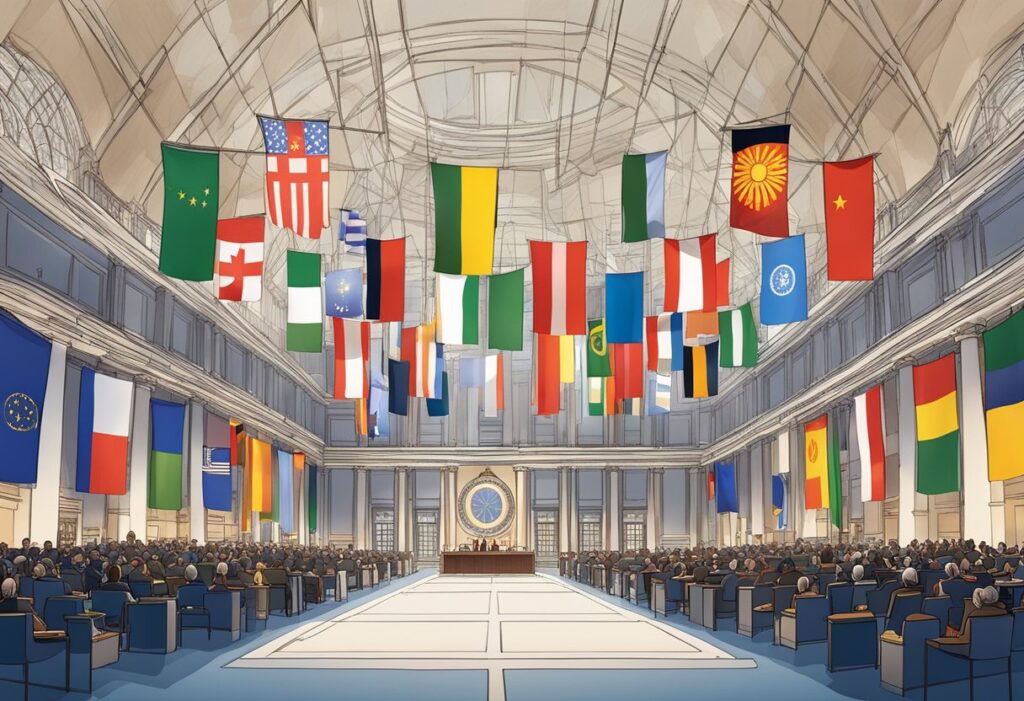The year 2024 has witnessed several notable arbitration awards, reflecting the intricate nature of international business operations and the diverse disputes that arise. These awards, often reaching into the billions, have substantial economic and sometimes geopolitical implications, drawing widespread attention from legal practitioners, corporations, and states alike.
The magnitude of the sums awarded in the recent arbitration rulings underscores the critical importance of arbitration clauses in contracts and the trust businesses place in the arbitration process. It demonstrates the capacity of arbitration tribunals to resolve multifaceted disputes and grant remedies that may not be available through national courts. The growing list of significant arbitration awards also highlights the evolving landscape of international law as it seeks to adapt to the complexities of modern commerce.
The cases that resulted in the largest awards of 2024 not only reveal the contentious issues at stake but also illuminate trends in the arbitration field, such as the preferred legal venues and the sectors most prone to high-stakes arbitration. Analysis of these awards provides valuable insights for contract drafters, litigators, and policy makers. It offers a lens through which the efficiency and effectiveness of arbitration as a dispute resolution method can be evaluated, while also gauging its impact on the practice of international law.
Overview of 2024’s Largest Arbitration Awards
2024 witnessed several landmark arbitral awards that not only influenced significant legal precedents but also highlighted the importance of global arbitration institutions.
Significant Arbitral Awards and Decisions
The year 2024 saw substantial awards rendered by several key institutions. The International Chamber of Commerce (ICC) and the International Centre for Settlement of Investment Disputes (ICSID) predominated in high-value disputes. In one notable case, the ICC resolved a long-standing dispute with an award exceeding $2 billion, marking it as one of the year’s most considerable sums awarded. The following table provides a summary of major awards:
| Institution | Award (USD) | Case Details |
|---|---|---|
| ICC | $2 billion | Contract dispute between a multinational corporation and a sovereign state |
| ICSID | $1.5 billion | Investment dispute involving energy sector assets |
| GAR Awards | $800 million | A complex case involving intellectual property and breach of contract |
Influential Arbitration Forums and Events
Paris Arbitration Week played a pivotal role in shaping the arbitration landscape, hosting a convergence of global experts discussing trends and practices influencing arbitration verdicts. Similarly, the Global Arbitration Review (GAR) provided comprehensive analysis and insights that captured the dynamic nature of international arbitration. These events offered platforms for legal professionals to network, debate, and stay informed on the evolution of arbitration standards and enforcement.
Trends and Developments in International Arbitration
In 2024, international arbitration has seen significant evolution in practices responding to global legal, economic, and political changes. There is an observable shift towards greater efficiency and the adaptation to geopolitical factors.
Evolution of Arbitration Practices
Arbitration practices have adapted to technological advances and the global shift towards sustainability. A notable practice is the robust use of remote hearings, which became widespread due to the necessity and effectiveness demonstrated through previous years’ experience. International arbitration panels frequently utilize video conferencing tools, effectively reducing costs and increasing the accessibility of arbitration for parties across jurisdictions. In-house counsel now often prefer arbitration for its efficiency and confidentiality benefits—particularly relevant in sensitive industries such as energy—over protracted litigation. Moreover, the growing focus on sustainability has led to increased disputes under the Energy Charter Treaty, as parties seek consensual resolutions that align with eco-friendly objectives.
- Rise of remote hearings
- Cost and time efficiency
- Increased focus on sustainability
International law and the maturation of arbitration institutions have provided a steady platform for the enhanced recognition of arbitrator impartiality and expertise. Emphasis on arbitrators’ specialization, particularly in complex sectors such as insolvency proceedings, signifies a trend towards a more informed and sophisticated arbitration process. The New York Convention provides robust support for the enforcement of arbitration awards internationally, reinforcing confidence in the arbitration process.
- Specialization of arbitrators
- Recognition of arbitration awards
Key Legal and Geopolitical Factors
Legal and geopolitical changes continue to impact international arbitration. The refinement of international law, including regulations on VAT, affects how arbitration is conducted across different jurisdictions. Political instability and changes in Europe have led to a rise in disputes, particularly concerning the application and interpretation of treaties such as the Energy Charter Treaty.
Uncertainty in international relations has led parties to seek more predictable dispute resolution avenues. The judiciary’s recognition of arbitration panels’ decisions and the increasing trend towards arbitration, particularly in regions facing jurisdictional uncertainty, reflects the stability offered by this method.
- Impact of changes in international VAT regulation
- European geopolitical shifts leading to increased disputes
At the same time, the United Nations and other international entities emphasize the importance of effective dispute resolution mechanisms to maintain global economic stability. The shift is towards faster resolution times to reduce the economic impact of prolonged disputes. The importance of confidentiality in arbitration proceedings confirms its role as a preferred method for sensitive disputes.
- UN emphasis on efficient dispute resolution
- Confidentiality as a critical factor in arbitration
In summary, international arbitration in 2024 is characterized by a thoughtful adaptation to technological advances, a heightened focus on environmental sustainability, and a keener awareness of the geopolitical milieu. These trends have consolidated the pivotal role that arbitration plays in the global legal landscape.








